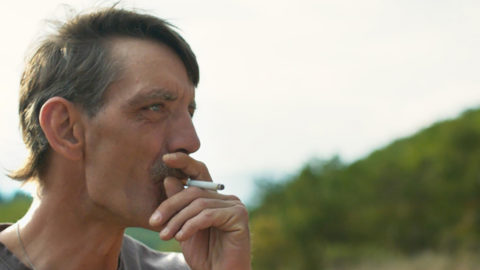By Dennis Lim in the July-August 2017 Issue
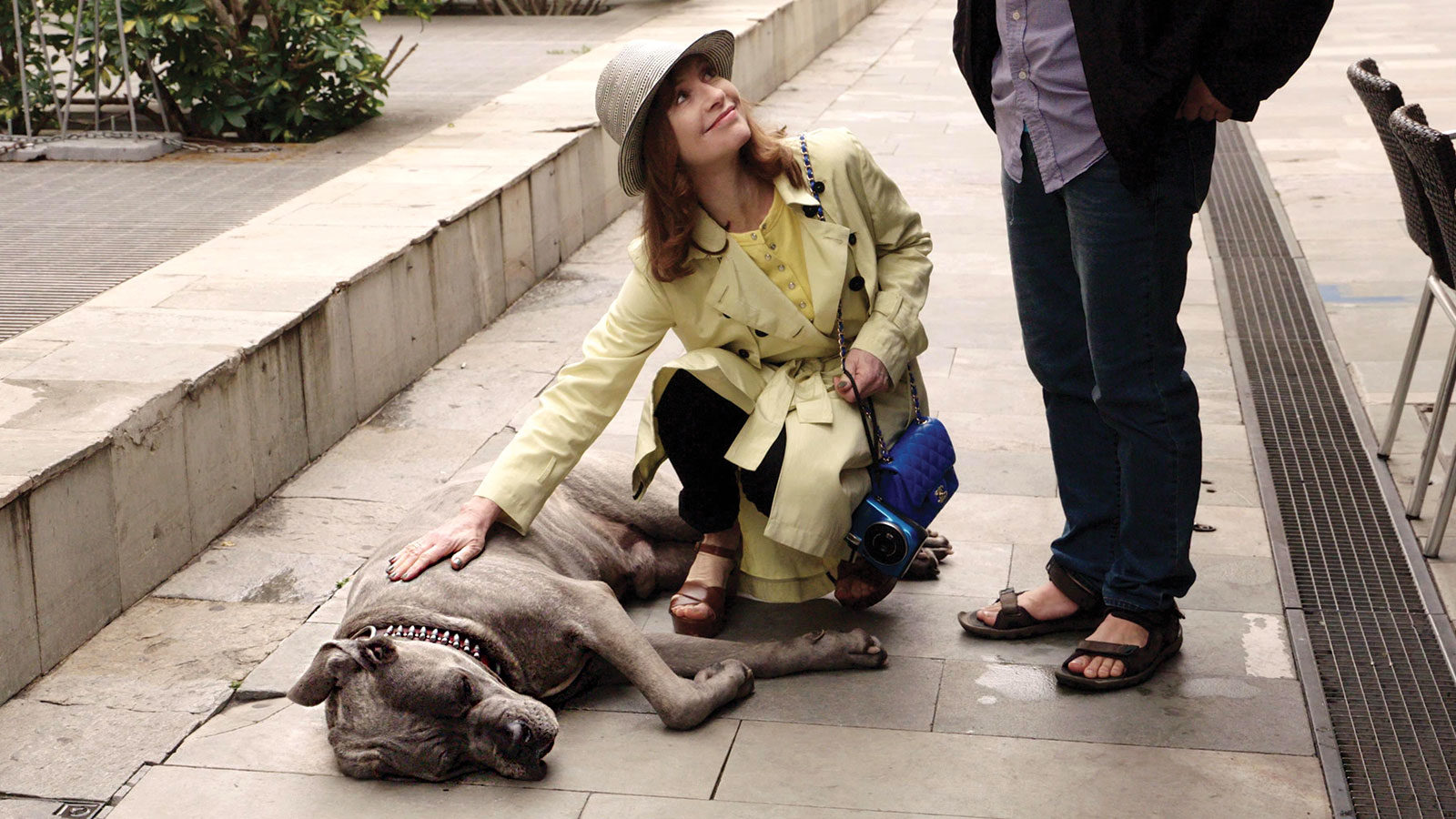
Keeping at It
The fruits and frustrations of labor were on display at Cannes
As you might expect of any change-resistant 70-year-old, Cannes leans heavily on the tried and true. Yet amid the pageantry of old masters on autopilot, there are special cases, filmmakers for whom repetition is not a matter of revisiting past glories but a means of renewal. A maestro of this rare art, Hong Sang-soo was back at the festival this year—with two films, no less—to prove that some forms of déjà vu are more interesting than others.
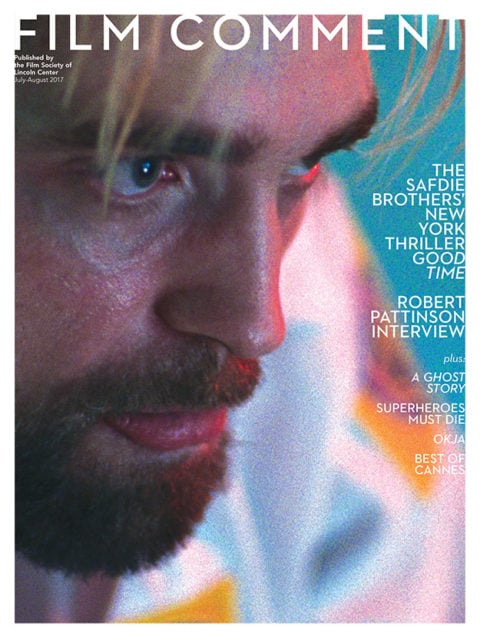
From the July-August 2017 Issue
Also in this issue
The increasingly prolific Hong premiered Claire’s Camera and The Day After, his 20th and 21st features (and his second and third of the year), on successive days. To counter the common rap that he makes the same film over and over, The Day After, which competed for the Palme d’Or, is one of his most melancholic works, filmed in moody black and white, while Claire’s Camera, shown out of competition, is its tonal opposite, a light and sunny divertissement shot on the fly during last year’s Cannes. Hong may be working too quickly for us to fully grasp the intricacies of a body of work unlike any other, a corpus both seamlessly coherent and sneakily unpredictable. It’s possible nonetheless to trace a general trajectory: he has recently gravitated to the perspectives of female characters, and the smaller budgets have meant less action than talk (or rather, action deflected to the realm of reflection) as well as a freer approach to form. If most of the earlier films were bifurcated, later ones have used more varied and subtly eccentric structures; the realist tenor has also come to accommodate touches of the cosmic and drifts into the surreal.
Hong’s movies invite autobiographical readings, so it’s not gratuitous to note that of late he has become a tabloid target in Korea for his affair with the actress Kim Min-hee, with whom he first collaborated on Right Now, Wrong Then (2015). While his films have always focused on romantic anguish and complication, the current phase—beginning with the devastating On the Beach at Night Alone, which won Kim the Best Actress prize at the Berlinale this year—is remarkable for an unflinching directness.
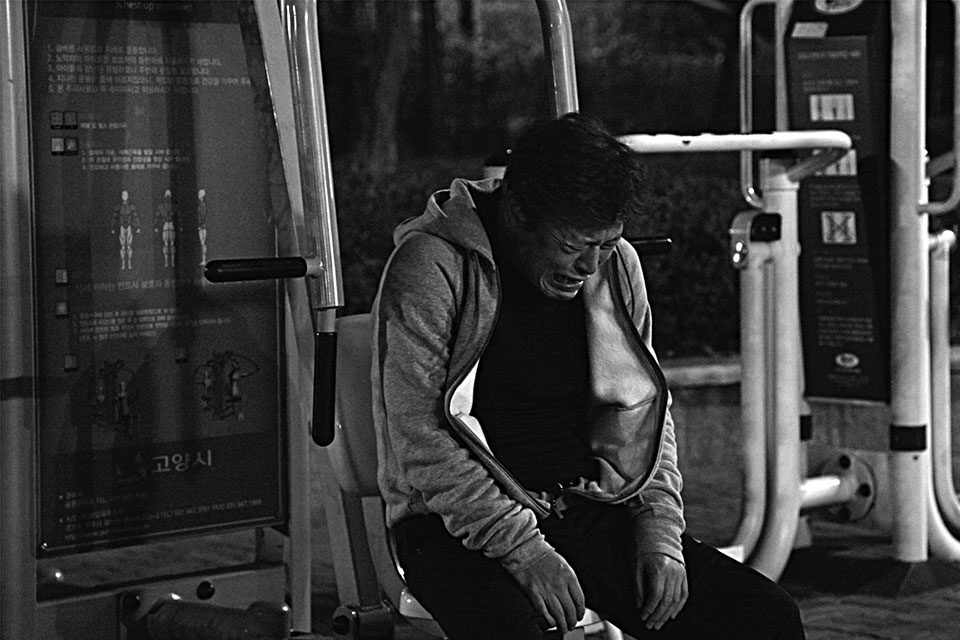
The Day After
As with most Hong films, The Day After invites us to parse the geometry of desire and betrayal that links its characters and the connection between its narrative planes, or in this case timelines—not a straightforward task since it is often hard to tell the precise duration elided in a Hong ellipsis, and if a cut signals a shift in time or an alternate reality. Much of the film is set on a single day that begins with Bongwan (Kwon Haehyo), a critic and publisher, confronting his wife’s heated accusations of infidelity. Frequent flashbacks—perhaps couched in memory (or is it fantasy?)—show emotional scenes with Bongwan and his ex-lover/employee. Back in the present, it’s the first day at work for Bongwan’s new assistant, Areum (Kim), a puzzled observer figuring out her role in the unfolding melodrama. Time here is not just nonlinear but poignantly subject to slippage, producing something akin to the time-warp effect of The Day He Arrives (2011). In addition to a startling, very Hongian occurence of déjà vu that in fact involves amnesia, The Day After includes one of his most remarkable soju-soaked long-take two-shots, in which boozy flirtation and flattery suddenly turn into a disquisition on the limits of language and the nature of reality. “Why do you live?” Areum asks Bongwan, as Hong’s camera zooms in to sharpen the question.
Set far from the red-carpet pomp of Cannes and among its lanyard-clad proletariat, Claire’s Camera is also a cautionary tale about mixing business with pleasure, and in its way no less philosophical. A sales agent (Kim again) is fired mid-festival for her “dishonesty”—which turns out to be code for sleeping with a director who’s also involved with her boss. The revelations emerge with the help of a French tourist named Claire (Isabelle Huppert, who brought down the house at the screening with her first line: “It’s my first time in Cannes!”). Through her numerous chance encounters with the Koreans, the cheerful Claire serves as the film’s narrative motor—or, as her trench coat suggests, a detective of sorts who helps the others see their situations more clearly. Kim and Huppert are a delightful pair, but amid the cross-cultural bonding comedy that also defined Hong’s Huppert-starring In Another Country (2012), there is a resonant idea about the uses of images. A faintly magical figure toting around a Polaroid camera, Claire views her photographs not as an aide-mémoire but as a tool of transformation: “The only way to change things is to look at everything again very slowly.” The film, less slapdash than it seems, happily supports her claim.
While familiar faces hog the spotlight, Cannes still leaves some room for newish talent, though these days never in the main competition. Three films by Cannes first-timers that broke through the din were also among the festival’s best: Emmanuel Gras’s Makala, winner of the Critics’ Week section; Pedro Pinho’s The Nothing Factory, a Directors’ Fortnight entry that took the international critics prize; and Valeska Grisebach’s Western, a critical favorite from Un Certain Regard. All, as it happens, deal with the physical reality and the larger meaning of work, a rarer subject in cinema than it should be, and even more bracing for having penetrated the bubble of the Croisette.
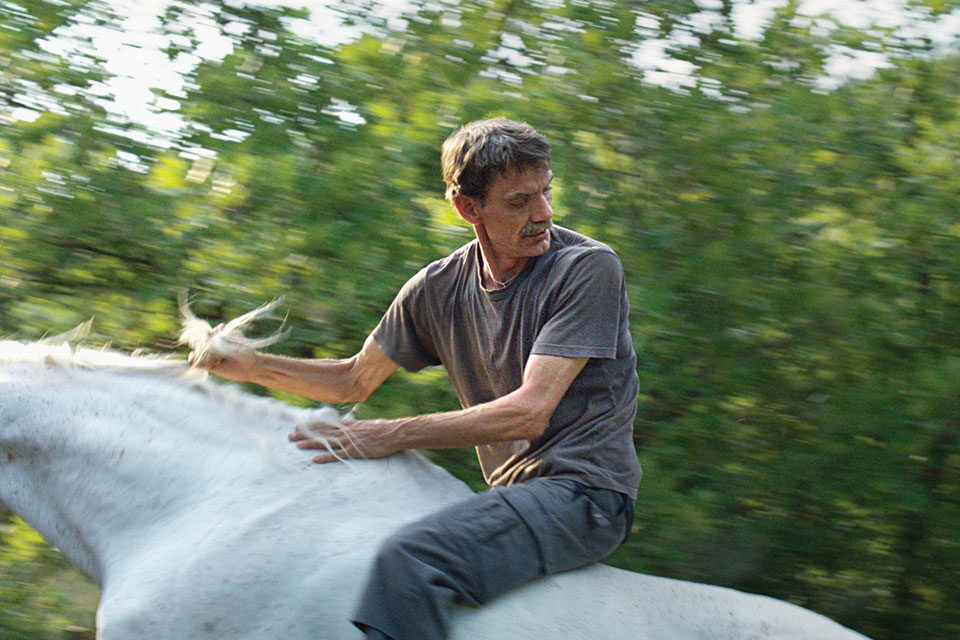
Western
The best of them—and the closest this festival came to a major work—Western shares the slow-building intensity of Grisebach’s shattering previous feature Longing (2006). The setting is rural Bulgaria near the Greek border, where a group of German workers are building a water facility. Meinhard (Meinhard Neumann), a reserved, watchful ex-legionnaire, is the newbie in this all-male company, and he immediately draws the ire and suspicion of the boorish team leader Vincent (Reinhardt Wetrek). The Germans have descended on this time-warped patch of Eastern Europe with heavy machinery and an entitled arrogance that Vincent embodies (“We’re bringing infrastructure”). Alone among the men, Meinhard approaches the villagers with curiosity, learning about their tobacco crops and stone quarries, getting ensnared in local disputes, but the film leaves ambiguous the motives of its sympathetic hero.
Populated with utterly convincing nonprofessional actors (casting alone accounted for years of pre-production), the film gains its force through a steady accretion of seemingly minor incidents and inconspicuous subtexts. No less than last year’s Toni Erdmann (whose director Maren Ade serves here as a producer), it’s sharply attuned to the reshaped economic contours of 21st-century Europe. As the deadpan title announces, Western is a film about the tension between colonizers and natives. A German flag is raised on the men’s campsite, and promptly stolen. Meinhard adopts a white horse, and even rides into town. But Western never belabors its genre connections. Instead it recognizes the Western as a template for eternal conflicts, a sly awareness that enriches the film instead of fencing it in.
Widening the lens to take in the ills of an entire economic system, Pedro Pinho’s The Nothing Factory is the latest cinematic response to Portugal’s financial crisis. Less flamboyant than Miguel Gomes’s Arabian Nights but filled with rewarding eccentricities of its own, the film revolves around the crew of an elevator plant. Roused into action when the machines are removed from the factory floor one night, the workers occupy the facility, kick out the brass who have arrived dangling buyouts, and debate the possibility of self-management. Pinho’s documentaries include Trading Cities (2014, co-directed with Luísa Homem), a perceptive study of Cape Verde’s tourism industry, and The Nothing Factory is a serious look at the role of work today, in particular for those sifting through the wreckage of capitalism. The presence of a shadowy character on the fringes—a kind of labor theorist or crisis-chasing agitator—allows for some pointed Marxist musings, and the three-hour running time contains manifold surprises and pleasures, notably a few bursts of self-reflexive song-and-dance and the loveliest of nods to Straub-Huillet’s Sicilia!.
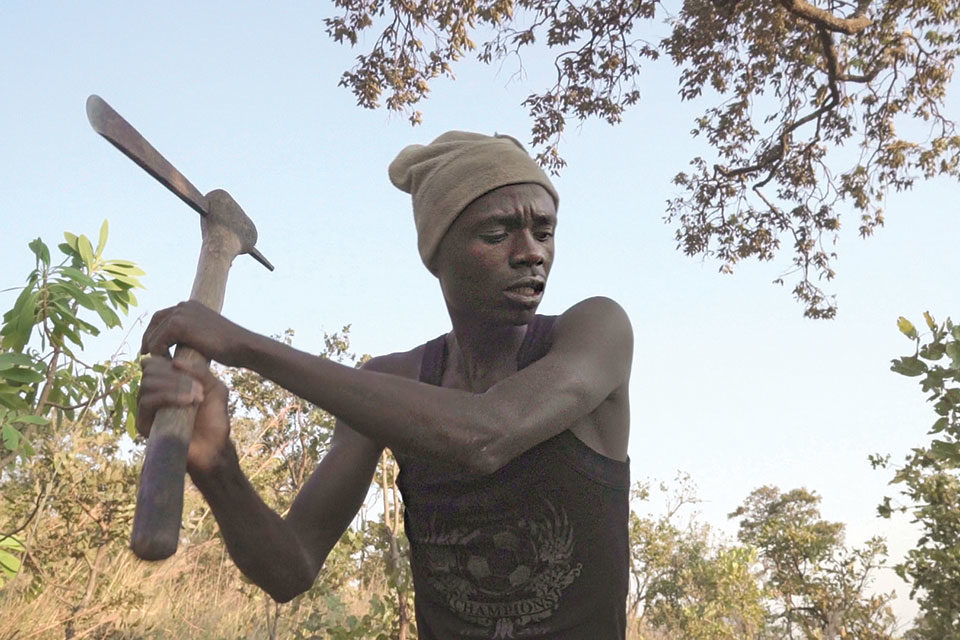
Makala
A documentary with the elemental simplicity of a neorealist parable, Makala shadows Kabwita, a young man in the Congo, through the processes of making, transporting, and selling charcoal. Every part of this chain of production, which he carries out by himself, is arduous: from felling a tree and building a forge to haggling in the markets of the nearest town, several days away on foot. In its middle third, the film turns into the most single-minded of road movies: Kabwita sets forth from his remote village to sell his wares, pushing a teetering bicycle weighed down with bulging sacks along treacherous dirt roads, contending with speeding trucks and extortionists. A film of considerable beauty, Makala locates an epic dimension in the humblest of existences. But Gras is not seeking to ennoble poverty: he recognizes that for Kabwita, and for many others like him, basic survival requires truly monumental efforts, and it is only right to film them as such.
Dennis Lim is the Director of Programming at the Film Society of Lincoln Center and the author of David Lynch: The Man from Another Place.



